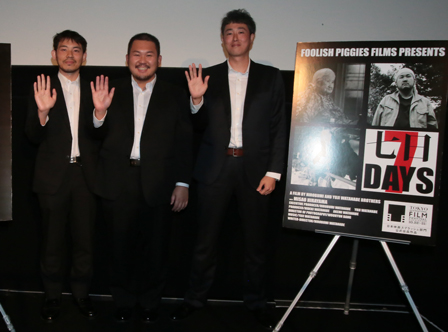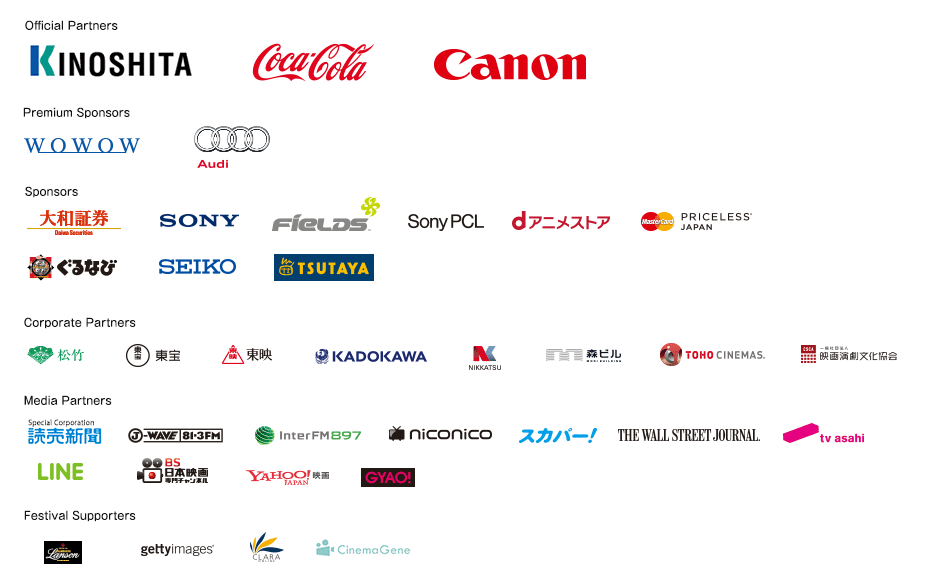
Director Hirobumi Watanabe’s film 7Days was screened on October 25 as part of the Tokyo International Film Festival’s Japanese Cinema Splash section. The director, who also stars in the film, appeared together with younger brother and musical director Yuji Watanabe, and cinematographer Bang Woohyun, at the TOHO CINEMAS Roppongi Hills for a teach-in about the film.
Set in a farming village in the outskirts of northern Greater Tokyo (Kanto) area, the film depicts the quiet life of a man who lives with his aging grandmother and works day after day at a cow shed. The pair repeat their daily routine in tune with nature, all portrayed in black and white without words. Actress Misao Hirayama, who plays the role of “Grandma”, is director Watanabe’s actual grandmother. This is her second appearance in the feature films, the first being And the Mud Ship Sails Away…, which was screened two years ago as part of the same section at the 26th Tokyo International Film Festival.
Watanabe spoke to the audience about working with his 98 year-old grandmother. “When making the first film, I’d tell her that I’m going to start recording but she wouldn’t care at all, but the film was big in a variety of ways. When her nurse visited every day she’d be greeted ‘Madam Actress’, so for this film she’s become like, ‘Well, I am an actress, so…’,” he grinned.
One audience member compared Watanabe’s film style to that of acclaimed Hungarian director Béla Tarr, and asked, “Does he inspire your work?” Watanabe answered, “I enjoy Béla Tarr and watch his films, but with Tarr and all European films, the difference with my film is that the position of God. In this film, nature appears so much because I wanted to depict Ya-o-yorozu no kami (Shinto) gods meaning “uncountably many” and life itself.
Watanabe also spoke about the film’s budget. “To make And the Mud Ship Sails Away…, I worked as a lifeguard at a swimming pool to raise 500,000 yen. This film took even less. Even the crew members dropped from four to three,” he chuckled self-deprecatingly. But he spoke of the positives of working on a low-budget film. “I really learned that, when you become cornered you think of all kinds of ideas.” Watanabe expects that the reception of this work will be “either love it or hate it”, but spoke of his desire towards these types of films. “Film is interesting because you’ll have some people that will tell me they found it interesting, but others that will tell me it’s rubbish. I want to continue making films that are consistently provocative, offensive, and interesting.
The news provided by eiga.com ![]()






















